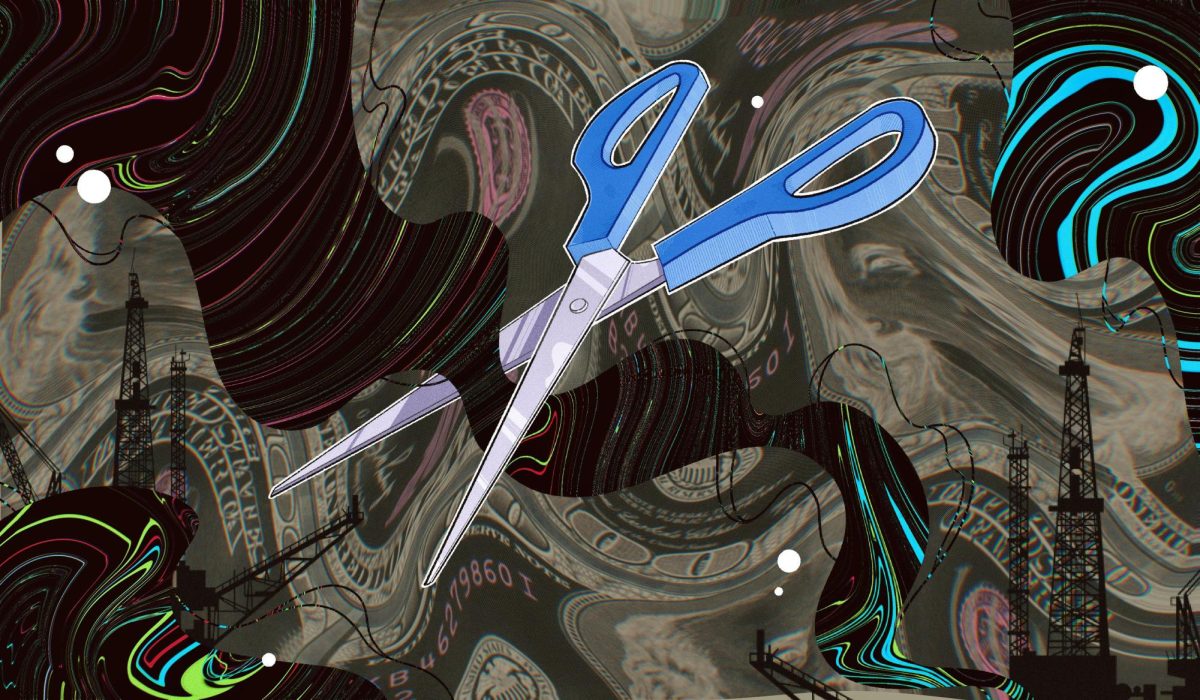The never-ending controversy in Florida is enough to make a person even more cynical about today’s politics in the United States, if that is possible. Not since 1887, when Congress created an election law regarding voter rights, has the fate of a new American president hinged for so long on a single state.
Many Americans are oblivious to how our country’s politics work. One would hope that by now, however, they have at least learned that they do not actually vote for their presidents. Their vote is far more indirect. In accordance to our country’s official form of electing presidents, the Electoral College system, Americans vote for other people to vote for their president. In other words, even if a candidate wins the popular vote of the people, he may still lose the election if he loses the electoral vote. Sound stupid? Well, you are not the only one who thinks so.
According to a recent article in Newsweek, many have described it as “”a dinosaur that should be retired to a museum,”” “”an appendage to an anachronism”” or “”a train wreck waiting to happen.”” Many prominent politicians are part of this list of Electoral College critics. For instance, New York Senator-elect Hillary Clinton and California Gov. Gray Davis, two politicians who appear to be the front-runners for the 2004 Democratic presidential nomination, have urged the eradication of the entire system.
Throughout America’s history, there have been attempts to reform the Electoral College or abolish it altogether. Today, more than 700 such attempts at reforming the system have been made, most recently in this year’s election. Past presidents Franklin Roosevelt, Richard Nixon and Jimmy Carter have been among the past attempted reformers.
Perhaps the biggest drawback of the Electoral College is the fact that a president can be elected even if he does not win the popular vote. Such a characteristic cheapens the notion of a so-called fair democracy, one in which the views of a people are supposedly reflected in the political process, especially one as significant as the election of their president.
Ironically, an American president has been elected without winning a majority of the popular vote 15 times. It occurred twice in the case of Bill Clinton; he won only 43 percent and 49 percent of the popular vote in 1992 and 1996, respectively.
Put simply, the system is old. In fact, it’s so old that at one time, its primary objective was to give a political edge to slave owners, many of whom, not surprisingly, were members of the Electoral College.
The Electoral College was born in a country far different from the one we live in today. Two hundred years ago when the framers created it, they emphatically did not want a president dependent on the legislature. Consequently, they immediately rejected a model reminiscent of England’s parliamentary system which allowed the legislature to pick its own leader as chief executive officer and prime minister.
Post-colonial traveling was very difficult, and this made the transfer of information slow and tedious. Adding to this was the fact that no national parties existed, leading the framers to fear that many regional candidates would divide the vote and subsequently skew the election process.
Proposals to select presidents by direct national popular election were shot down quickly and deemed impractical for a young nation so large and spread out. Three reasons were given by the framers, according to the testimony of Yale professor Akhil Amar to the House Judiciary Committee in a 1997 hearing on Electoral College reform.
First, very few candidates would have truly continental reputations among ordinary citizens. As a result, most Americans would not have enough information to intelligently choose a national figure for president.
Second, a president elected by a national popular vote was seen with much suspicion. Many founding fathers felt that a populist presidency was at risk of attracting demagoguery and even dictatorship if one man claimed to be the voice of the American people.
Third, the framers believed a national popular election would ruin the delicate balance of power among states. For example, southern voices would count less in a direct national election because slaves were not allowed to vote. In addition, abuses in voting practices could result from a popular election.
“”A state could increase its clout by recklessly extending its franchise,”” Amar said. “”For example, if a state let women vote, it could double its weight in a direct national election.””
The framers endorsed an Electoral College system because it allowed a state to get a fixed number of electoral votes no matter how broad or narrow its franchise.
Amar claimed the system is painfully outdated.
“”I consider the so-called Electoral College a brilliant 18th-century device that cleverly solved a cluster of 18th-century problems,”” Amar said. “”As we approach the 21st century, we confront a different cluster of problems and our constitutional machinery of presidential selection does not look so brilliant.””
None of the reasons the framers had for defending the Electoral College system is relevant today. For one thing, almost all Americans are familiar with the candidates running for the presidency. Even if they are not, today’s advanced communications technology allows all information on a candidate to be virtually a click away. The mass media alone is enough to relay sufficient amounts of information about a candidate, even though it is often biased in nature.
With the existence of different political parties, demagoguery or dictatorship are highly unlikely. Finally, the framers’ last argument about abuses in state voting practices is thoroughly obsolete. Today, both African Americans and women are able to vote and are no longer selectively disenfranchised. States do not play as big a part in deciding whether to give the voters a direct voice in choosing electors, nor do they play as significant roles in defining the electorate.
The Electoral College suffers from other faults, as well. Over the years, it has tended to over-represent voters in rural states. For instance, in 1988, seven of the least populous jurisdictions in the United States, including the District of Columbia, combined to have the same number of electoral votes as Florida: 21. At the time, however, the combined population of those seven jurisdictions was only one-third the population of Florida.
Yet another criticism of this antiquated system is that the electoral votes of each state are awarded solely on a winner-take-all basis, in which case the potential of a third-party or independent candidate to win any electoral votes is pitifully slim.
Defenders of the Electoral College system argue that to abolish it would be profoundly dangerous. They say that it would allow presidential candidates to direct their campaign attention solely to those areas with the largest populations. With campaign conduct already under heavy scrutiny, many of them feel the problems would only get worse were the current system revised.
My retort to these defenders is really quite simple: Time causes change and America as a nation has followed suit accordingly. All complications which may arise as a result of the abolishment of the Electoral College system should be anticipated and prepared for. After all, everyone knows that any significant social change necessitates an almost equal amount of adjustment. Such is evolution and the nature of transition.
Let this year’s mess of an election be proof that America is in dire need of change in its method of selecting its presidents. In times of change, America has followed suit admirably before. I say it’s high time we did so once again.







